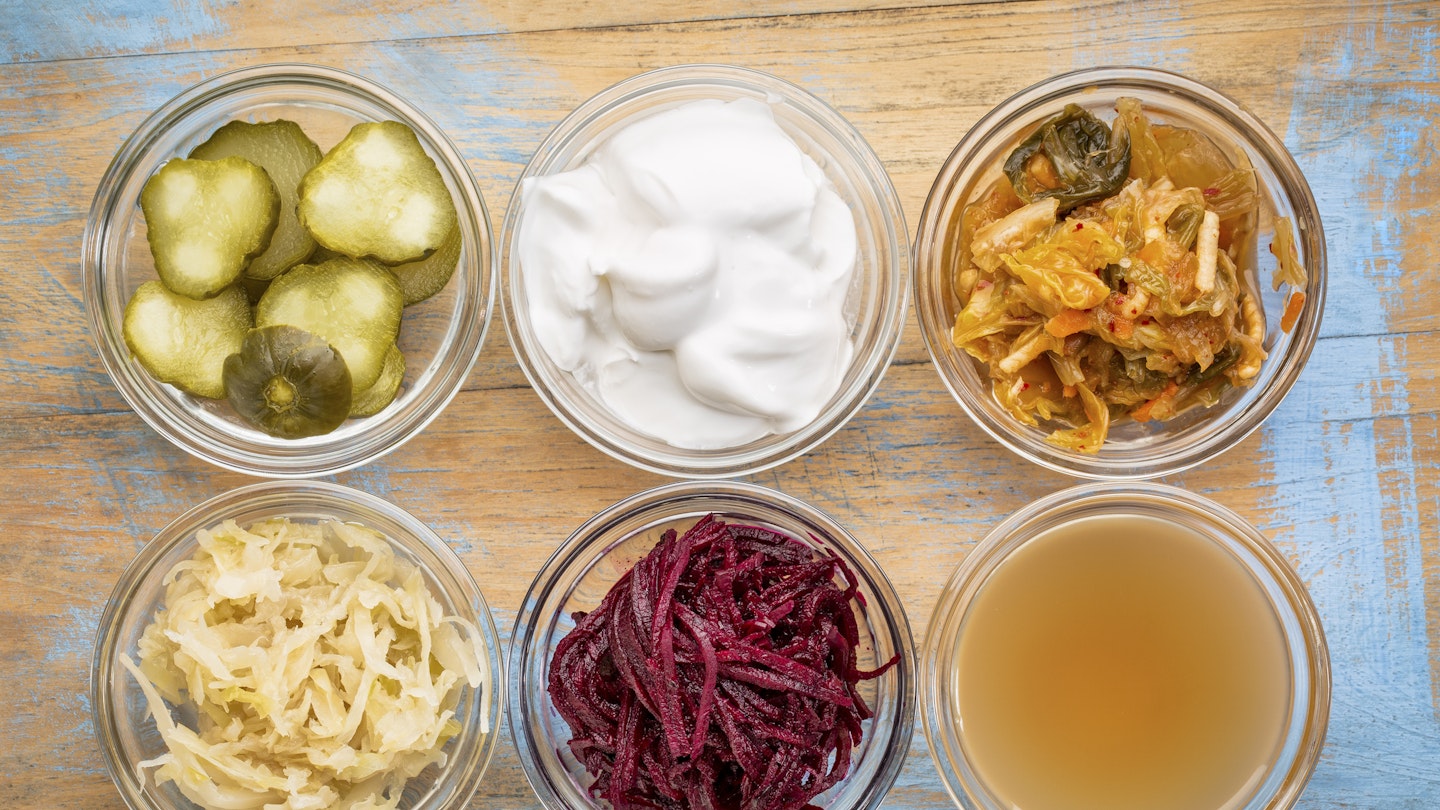Incorporate these foods into your diet for a healthy dose of natural probiotics.
Naturally fermented foods have been heavily recommended for a very long time now by medical experts and dieticians for being a great source of natural probiotics which promote healthy digestion and keeping your gut happy. Understanding the benefits of fermented foods for gut health has become even more important after researchers at the Stanford School of Medicine published a study about fermented foods strengthening gut microbes and playing a more prominent role in boosting our immune systems.
Recent studies have also revealed that fermented foods can positively influence cognitive performance because of their connection to the microbiota-gut-brain axis. As a highly beneficial addition to your diet, it is important to identify the right kind of fermented foods to opt for. Beneficial probiotics are only found in foods that are ‘naturally fermented’ using live organisms. So, it is worth keeping an eye out for this label while picking your products.
With April being recognised as the IBS Awareness Month, it's the perfect time to take care of your gut health. Here are the top 10 fermented foods for gut health that we recommend.
1. Yogurt

One of the daily staples available in our refrigerators at any given time is yogurt. Made from fermented milk, it is rich in Lactobacillus acidophilus which is the probiotic most often found in Greek, Icelandic and many other kinds of yogurts. It is also worth ensuring that the ingredients section includes 'live and active cultures' which will guarantee the presence of probiotic cultures in the yogurt.
Ways to include in your diet: Easily available at any supermarket, yogurt can be incorporated into your diet as part of any meal. Pairing it with fruits or cereal is a good way to start the day or it can also be a great topping or dressing paired with salads or savoury dishes like stir-fried veggies or spicy rice dishes. The good news is you can also make your own yogurt at home.
2. Kombucha

As a carbonated and fermented tea-based drink, Kombucha comes with a probiotic culture called 'scoby' which stands for 'symbiotic culture of bacteria and yeasts' which is good for your gut. The benefits of this concoction are numerous and Kat Ronaldson, creator of Phat Kat's Kitchen who use green tea to brew their kombucha has spoken to us about how it helps to improve the functioning of the heart, brain and digestive system.
Ways to include in your diet: This can be a healthy alternative to your daily dose of tea or coffee. Available in multiple fruity flavours across grocery stores, these drinks are easy on the palate. Since it is carbonated, you can also swap it with soda as a healthier choice. If you would like to try making your own kombucha at home where you would be in control of the level of sweetness, strength and flavours, there is a method listed for that as well.
3. Kimchi

Kimchi is a traditional Korean-side dish that has won the world's heart and is now enjoyed by people all over. It is made of fermented cabbage, but can also include other vegetables, meat and spices. It is said to be rich in probiotics that help reduce bloating, inflammation, stomach aches and irregular bowel movements.
Ways to include in your diet: This spicy and tangy dish has proven to be very versatile and can be enjoyed as a pickle in addition to your main dish or contribute to the flavours of a kimchi fried rice, noodles or even Mexican options like tacos or a burrito wrap if you are feeling bold. Kimchi can easily be purchased from Asian markets or even general grocery stores. You can also make your own kimchi by following this recipe.
4. Cheese

Another easy way to get those probiotics in your diet is a variety of cheeses like parmesan, aged cheddar, gouda, cottage cheese or mozzarella. It is also important to choose aged cheeses that have not been heated to ensure that the probiotics are still present in them. Cheese also helps improve your gut health by reducing inflammation, supporting digestion and maintaining healthy gut bacteria.
Ways to include in your diet: Cheese makes a good addition to salads, a delicious topping for pasta and a fun dip as part of charcuterie boards or as an evening snack. It also pairs well with wine.
5. Olives
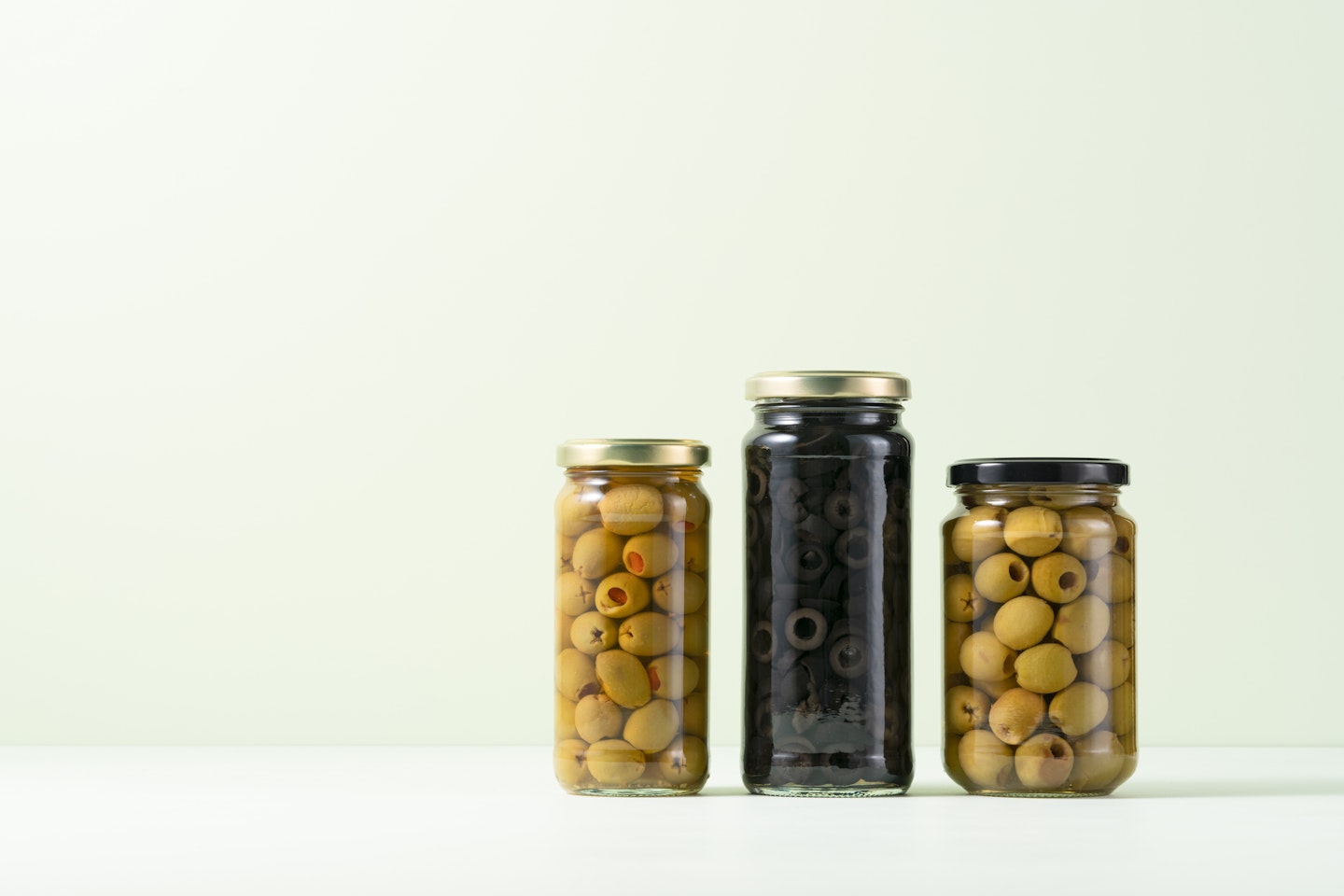
As a product that undergoes fermentation by saltwater, preserved olives are a great source of lactobacillus which helps in maintaining a rich balance of healthy gut bacteria and enzymes. With antioxidant and anti-inflammatory properties, olives are also said to promote a healthy digestive and help boost your immune system.
Ways to include in your diet: Available as jars of pickled olives or as small packs which can be a healthy snack, olives are very versatile. They add a dash of tangy flavour to dishes like pasta, pizza, salads, sandwiches and a variety of savoury dishes that include baked meat or grilled vegetables.
6. Sauerkraut
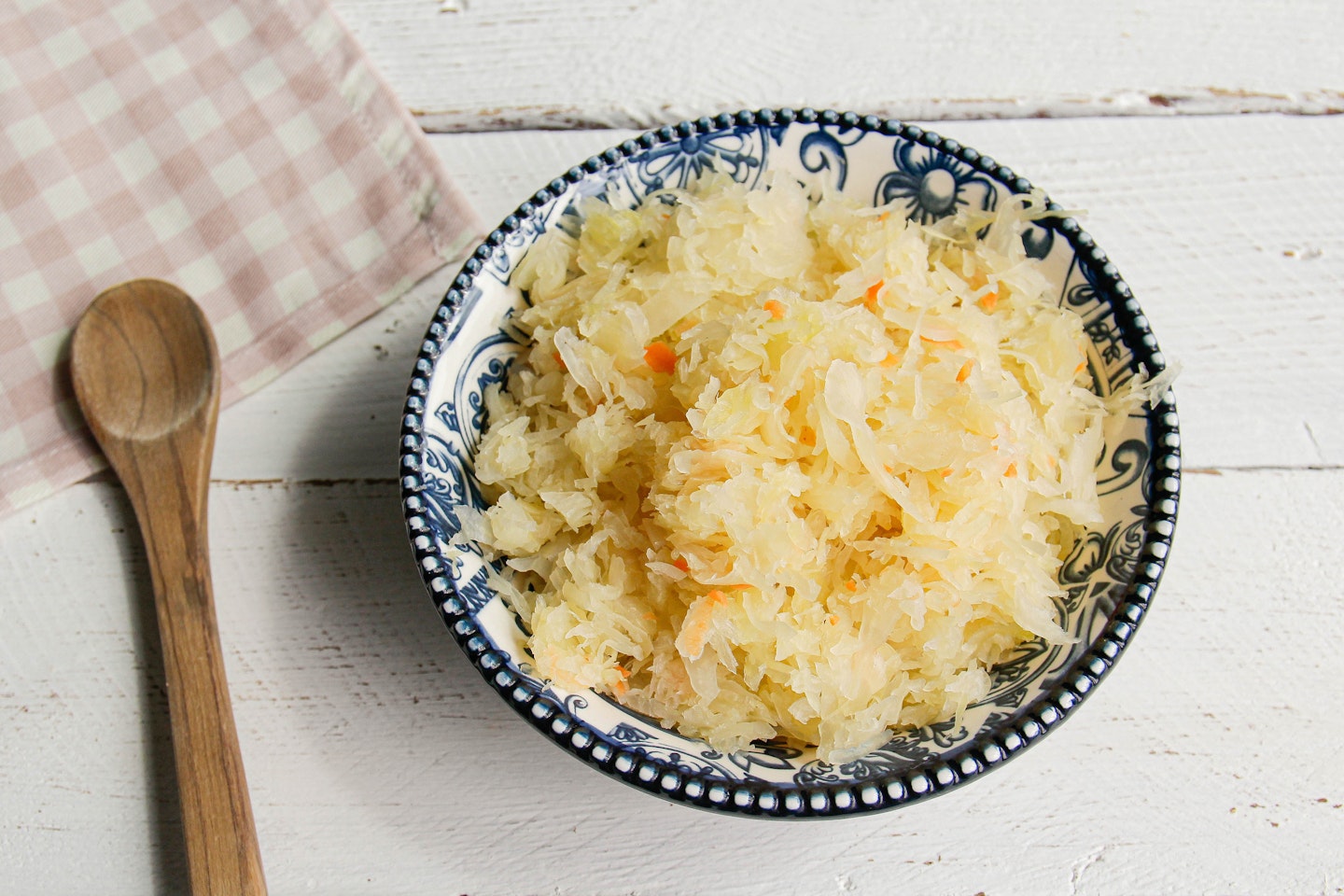
As a type of fermented cabbage, sauerkraut combines salty and sour flavours in a perfect balance. The fermentation process amplifies its health benefits in maintaining a healthy gut and reducing inflammation. To ensure that you are getting sauerkraut which contains beneficial bacteria, be sure to purchase ones that have not been pasteurised and these usually need to be refrigerated.
Ways to include in your diet: Easily available in any grocery store, this crunchy side dish can be a fun addition to your sandwiches, wraps, salads, soups or stews. They also pair well as a side to meat dishes, fish or vegetables like potatoes.
7. Miso
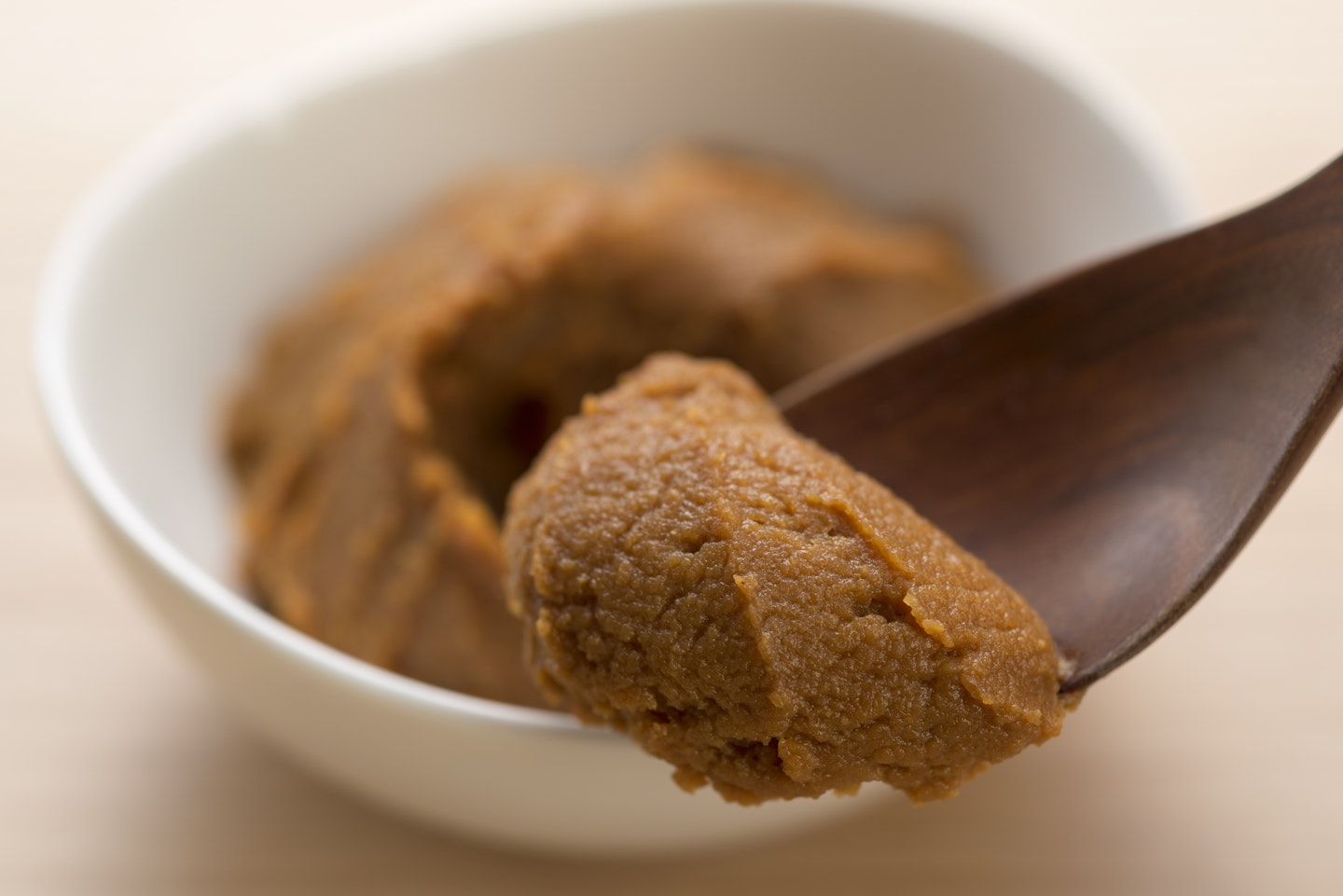
As a traditional part of Japanese and Chinese cuisine, miso is a fermented paste made of soybeans or grains like barley and rice. Rich in probiotics, it helps in maintaining healthy gut bacteria, fight infections and improve immunity.
Ways to include in your diet: Miso can be easily found in the Asian cuisine aisle of any grocery store and it can be used as part of soups, broths, sandwiches, wraps or salads. The taste is close to that of soy sauce with a salty, tangy and concentrated flavour. It can also be mashed into potatoes, used to glaze vegetables, used over grilled meat or be incorporated into the dressing or sauce to go with your main dish.
8. Kefir
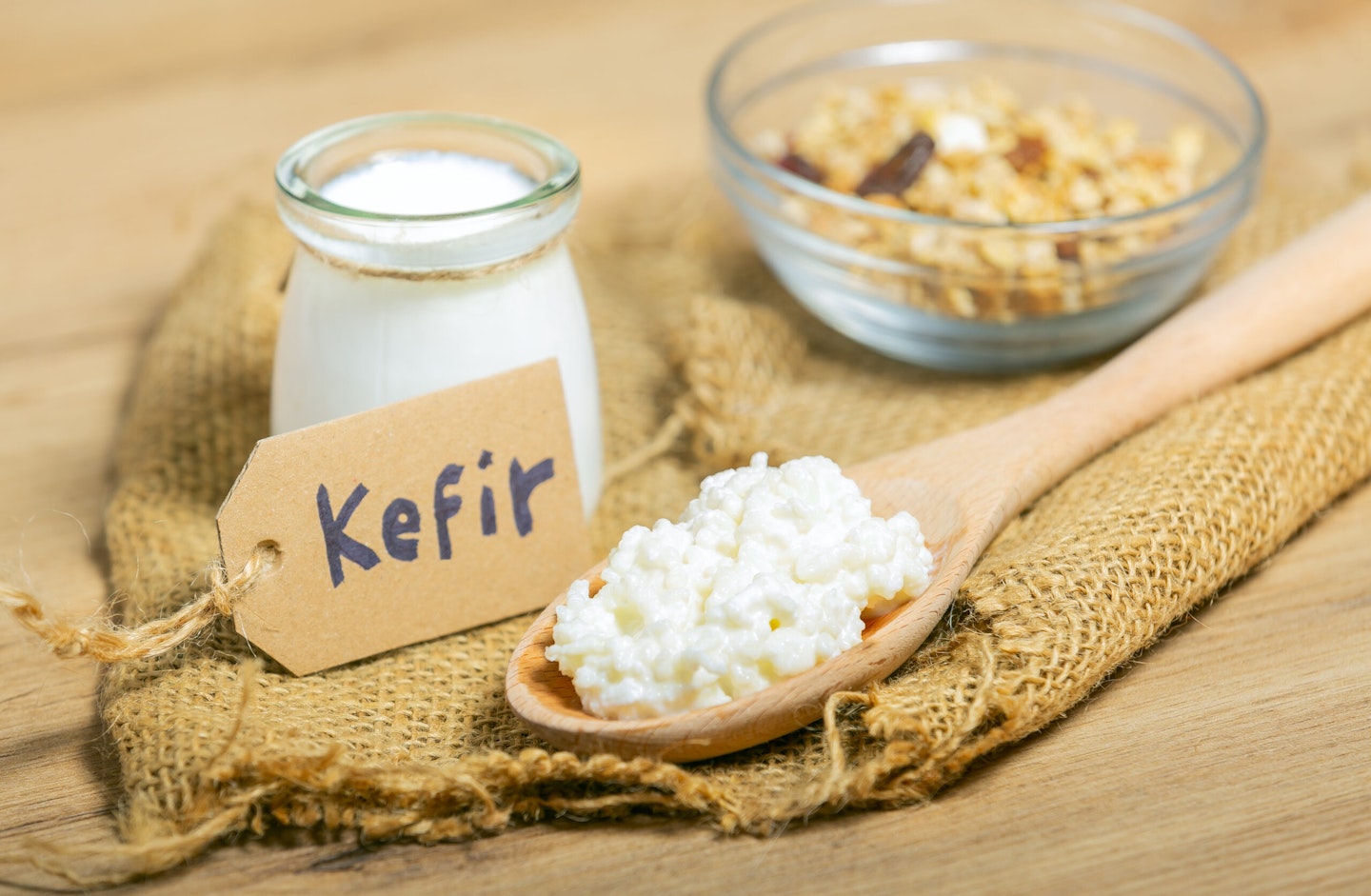
Kefir grains which contain bacteria and yeast are added to milk to ferment it and produce a dairy product that is very similar to yogurt in appearance and taste. Kefir is known to enhance gut microbes, reduce inflammation and help with improving immunity.
Ways to include in your diet: It can be found in stores like Waitrose or Holland & Barrett. It is also worth checking the dairy sections of general supermarkets. It can be consumed as it is like yogurt, with salt or sweeteners if you prefer. It is a probiotic rich alternative to milk which you can add to smoothies, gravies or make oats with. It can also be used to marinate meat before cooking it.
9. Tempeh

Made from naturally fermented cooked soy beans, tempeh is similar to tofu, but firmer and nuttier in flavour. It is said to have health benefits that help with improving gut well-being, bone health and the cognitive system.
Ways to include in your diet: Easily available in supermarkets, tempeh can be used the same way as tofu or meat. It can be stir-fried, added into salads, made as a gravy or grilled to use with sandwiches, wraps or tacos.
FAQs
How often should you eat fermented foods for gut health?
Bahee Van de Bor, a registered dietician and BDA Media spokesperson recommends consuming small amounts of these probiotic-rich foods on a daily basis to reap the benefits for gut health. "Rather than indulging in large quantities sporadically, the key is incorporating fermented options into your diet consistently. For example, you could swap regular yoghurt for kefir when making overnight oats or use aged cheeses for sandwich fillings. And if you enjoy Asian-inspired meals, be sure to include a serving of kimchi or use fermented bean paste to make dressings and marinades," she adds.
How to ferment food at home?
Clarissa Lenherr, a registered nutritionist based in London has laid out detailed instructions on how to go about fermenting your food at home.
Choose your ingredients: You can ferment a wide variety of vegetables, fruits and dairy products. Common choices include cabbage for sauerkraut or kimchi, cucumbers for pickles and using kefir grains which can be purchased online to add them to milk overnight. You can also drain the grains out and reuse them.
Prepare equipment: You'll need clean, sterilised glass jars/bottles. Make sure they have tight-fitting lids.
Create a brine or starter: Depending on the recipe, you may need to create a brine using salt and water or use a starter culture like a store-bought fermentation starter.
Create your mix: Layer your washed and chopped ingredients into the jar, pressing them down firmly. Make sure the vegetables are fully submerged in the brine or liquid.
Ferment: Seal the jar with a lid and place it in a cool, dark place to ferment. The fermentation time can vary depending on the recipe.
Check the ferment: Periodically check on your ferment to ensure that the vegetables remain submerged and that no mold or other signs of spoilage develop. If you see any mold, discard the batch.
She also warns that it is important to make sure that you don’t double dip when you’re taking food out of the jar as this can cause harmful bad bacteria to grow.
Are there any risks or side effects to eating fermented foods?
"While generally safe for most individuals, allergic reactions can occur in some cases, especially with ingredients like soybeans or grains used in fermentation. Additionally, fermented foods can be high in histamine, so those with histamine intolerance may have bad reactions to these foods," Clarissa says.
"For those with sensitive digestive systems, eating fermented foods may cause gas, bloating, and discomfort as the gut needs time to adjust to processing active cultures. This is why it’s important to start low and slow when introducing fermented foods, to build up tolerance. Beginning with just a tablespoon or two and then steadily increasing the serving size over the course of several days or weeks will help to avoid uncomfortable side effects," Bahee adds.
What is the difference between probiotics and fermented foods?
Clarissa Lenherr clarifies that probiotics and fermented foods are related but not the same. "Probiotics are live microorganisms such as lactobacillus and Bifidobacterium, which when consumed in adequate amounts, can promote a healthy balance of gut bacteria. Probiotics can be found in supplements or added to certain foods. On the other hand, fermented foods have undergone a fermentation process to grow live bacteria within them, providing benefits such as additional nutrients and digestive enzymes," she says.
"The key difference is that probiotics are the live, beneficial bacteria themselves, while fermented foods are the products of microbial fermentation, which may or may not contain probiotics," adds Banhee.Clarissa Lenherr clarifies that probiotics and fermented foods are related but not the same. "Probiotics are live microorganisms such as lactobacillus and Bifidobacterium, which when consumed in adequate amounts, can promote a healthy balance of gut bacteria. Probiotics can be found in supplements or added to certain foods. On the other hand, fermented foods have undergone a fermentation process to grow live bacteria within them, providing benefits such as additional nutrients and digestive enzymes," she says.
Meet the experts
Clarissa Lenherr BA HONS, DIP NT, mBANT, mCNHC is a registered nutritionist and workplace wellness expert. As a certified member of The British Association of Nutrition and Lifestyle Medicine (BANT), she helps people to understand nutrition, healthy diets, lifestyle and productivity better through seminars, personal sessions at her clinic and workshops.
Bahee Van de Bor is a registered paediatric dietitian and a Media spokesperson for The British Dietetic Association (BDA). As the Chair of the BDA Specialist Paediatric Group, she worked extensively with allergies, conditions like IBS and specialised diets to help promote gut health and improve nutrition intake.
Akhila Thomas is a digital writer at Yours.co.uk. With a background in literature and journalism, she loves writing about art, culture, health, wellbeing, fashion and lifestyle. She is an avid reader, and a good plot can keep her up for hours. She also likes to travel and explore new cultures and cuisines.
